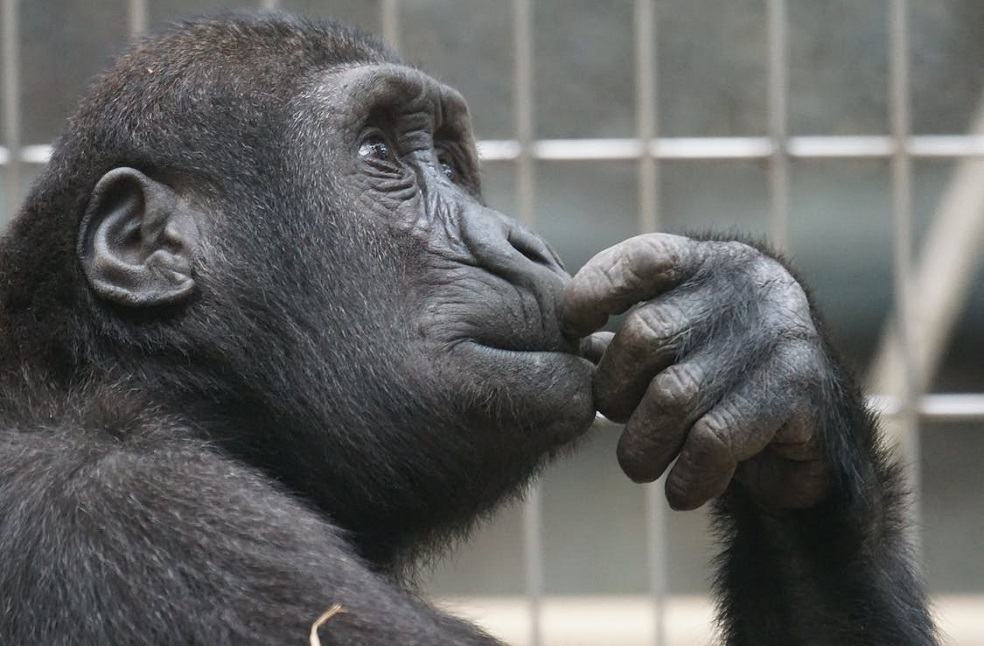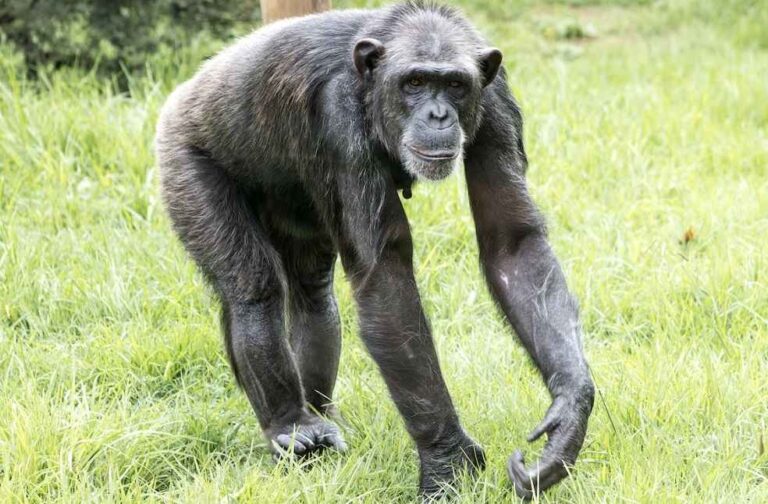United States: A news study has found that female chimpanzees live for a lengthy period after menopause. “Menopause ends reproduction around the age of 50 in both humans and wild chimpanzees,” the researchers report, adding they found it was not unusual for chimpanzees, like humans, to live longer.
In the study published in the journal Science, researchers noted how they studied 185 females in the Ngogo community of wild chimpanzees in Kibale National Park, Uganda, from 1995 to 2016. The research team found the probability of giving birth fell after chimpanzees reached 30 years old, and no births occurred in animals aged above 50.
According to reports, 16 females lived beyond this age. The analysis further suggested that females lived about one-fifth of their adult lives in a post-reproductive state. The team also studied urine samples from 66 female chimpanzees, revealing hormonal changes with age similar to those seen in humans during menopause.

Previous studies have not found substantial numbers of wild female chimpanzees living in a post-reproductive state. The team noted that one possibility is that favorable conditions at Ngogo allow more females to live until they are older.
Additionally, the authors remarked that there is another possibility: a lengthy period of life after reproduction ends may have been common throughout chimpanzees’ evolutionary history, but recent human activity at sites other than Ngogo, resulting in disease and habitat loss, has hindered the survival of wild populations, including older females.
“It is not obvious how selection can favor the extension of lifespan past the point at which individuals can no longer reproduce,” Dr. Kevin Langergraber, co-author of the study at Arizona State University, commented.



